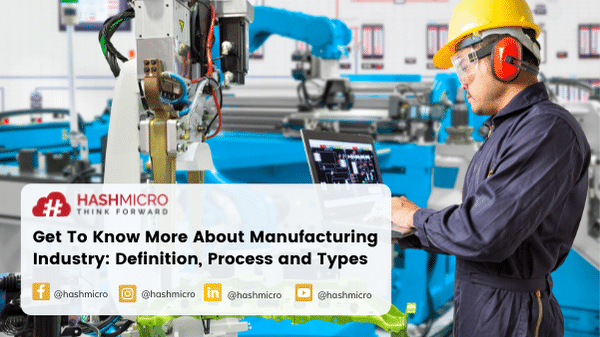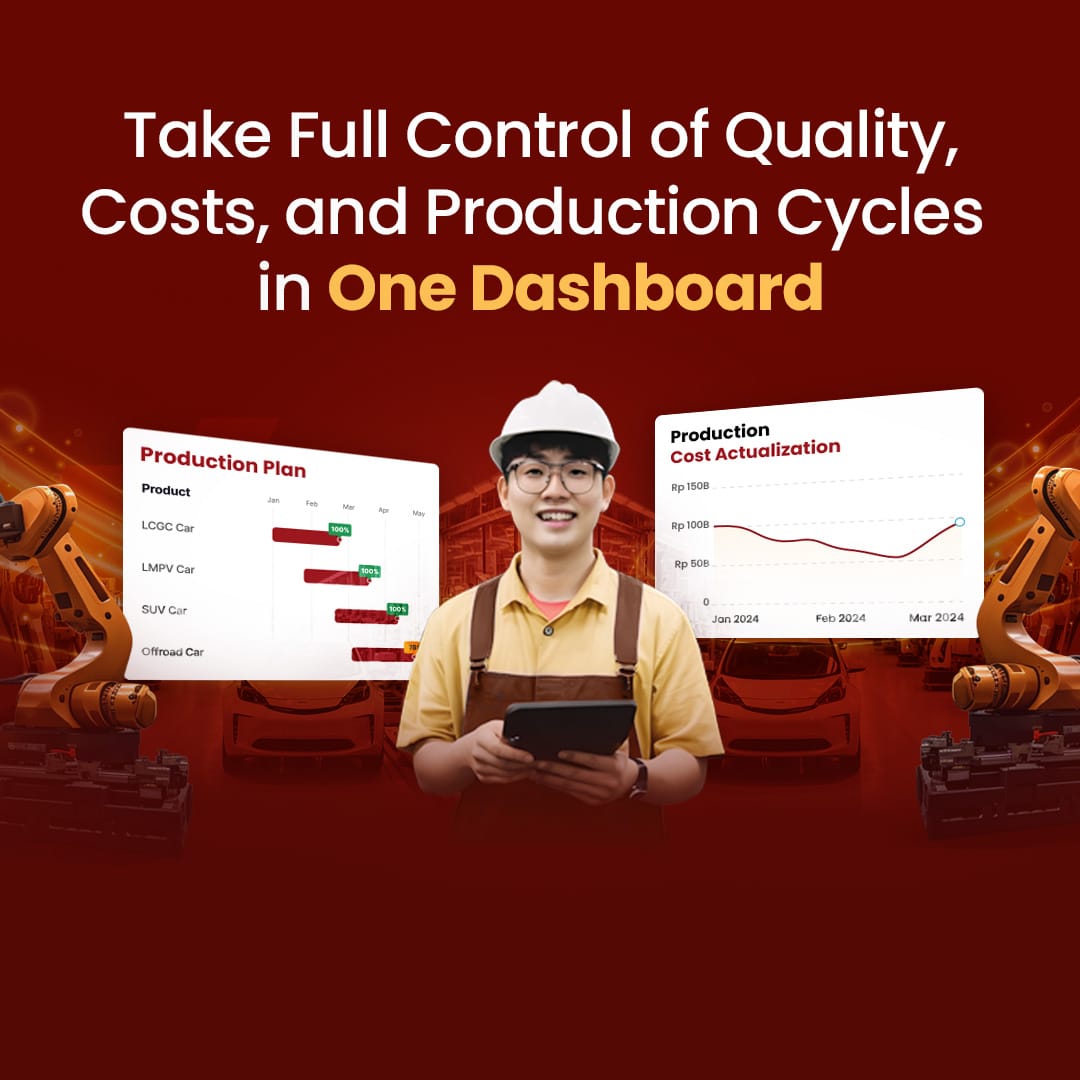Have you ever wondered where the goods that you use daily come from? It is intriguing if you wonder how industries manufacture all this. All those goods are what the manufacturing industry gave to you. Manufacturing itself is the process of transforming materials or components into finished products that can be sold in the marketplace.
Every physical product that you buy in a store or online is manufactured somewhere. Let’s get to know more and look at the different aspects of the manufacturing industry with HashMicro. Not only about the business process but also the contribution of the industry and the classification as well.
Key Takeaways
|
Table of Content:
Table of Content
What is the Manufacturing Industry?
Manufacturing is the industry that transforms materials or substances into new products. The conversion process is physical, chemical, or mechanical.
Manufacturers often have factories that produce goods for public consumption in their country of origin, but many companies rely on outsourcing manufacturing to Mexico or other countries with lower production costs to cut their expenses.
Machines and systems are typically used in the mass-producing process. However, in some cases, it can be made by hand. Examples of this are handmade jewelry, other crafts, and art. Indonesia has several major manufacturing industries.
Those industries produce food, beverages, tobacco, textiles, paper, petroleum and coal, plastics and rubber, metals, computers and electronics, transportation furniture, and many more. All those products are very familiar to everyone because most of them are for daily use.
What is the Manufacturing Process?
Manufacturing is the production process of goods using labor, machinery, tools, biological or chemical treatments, and formulations.
In addition, Manufacturing also means the production of more complex products by converting raw materials into finished products on a large scale, or by selling basic products to manufacturers to manufacture products such as automobiles, airplanes, and home appliances.
Those raw materials are converted to products through manufacturing engineering or processes. This process begins with product design and material selection.
Materials are changed during various manufacturing processes to manufacture finished products. Modern advanced manufacturing often involves multiple intermediate processes for creating different components.
To optimize these processes, companies often implement manufacturing resource planning systems, which help in efficiently managing the resources, schedules, and operations involved in production.
5 Types of Manufacturing Process
1. Repetitive
The repetitive process is a basic one, where the same product is manufactured on the assembly line, which is part of the iterative manufacturing process. These types of rapid manufacturing work mass-produce the same or very similar products 24 hours a day, 7 days a week.
Examples of this type of process are for the automotive industry, electronics, semiconductors, and durable consumer goods. These mass-produced industries are ideal for mass production because consumer demand for final products is stable and predictable.
The assembly line remains fairly constant and there are few changes as the product is manufactured over a period of time.
2. Discrete
This type is a bit similar to repetitive. It is also done on the production line, but the resulting finished products are often very different. To switch between different product models, you need to change the configuration of your assembly line.
In the manufacturing facility, this is called conversion and is costly to set up in terms of time, effort, and resources. For example, in the computer industry, not only is technology constantly evolving, but customers are demanding mass customization.
3. Job shop
Instead of an assembly line, production areas like workstations and workshops, are using the job shop process. Each worker may add something to the product when it passes through their station before it is moved on to another, and until eventually, the final product is finished.
Hence, this method of manufacturing is ideal for custom manufacturing because it tends to be slower and produces a low volume of highly customized products. For example, consider a job shop that builds a custom cabinet. Workers are set on the workstation and replenished when the cabinet is brought in.
One may be responsible for sawing wood, the other for applying resin, another for polishing paint, and another for assembling. Keep in mind that contract manufacturing is not just for low-tech products.
The advanced manufacturing of fighters and missiles for the aerospace and defense industries is also using this process. These products are manufactured by highly skilled professionals who use advanced techniques and ensure high-quality workmanship
4. Continuous process
Continuous process type is very similar to repetitive because it runs 24 hours a day, 7 days a week repeatedly manufactures the same or similar products, as well as creates large orders. The main difference here is that the raw materials used are not solid components, but gases, liquids, powders, and slurries.
Works much like repetitive production, except that the raw materials are different. A practical example of this could be a pharmaceutical company that manufactures large amounts of painkillers.
Traditional industrial manufacturing industries that widely utilize continuous processes include: includes pharmaceuticals, chemicals / industrial gas, fertilizer, power plants, and others.
5. Batch process
The batch process of manufacture differs quite a bit from the continuous process and is more similar to discrete and job shops. The number of batches is sufficient to meet the needs of a particular customer.
Between batches, the equipment is cleaned and left until another batch is needed. The raw materials used are similar to continuous process manufacturing, as they also include liquids, gases, powders, and slurries.
A prominent example of this is the source maker. You may be able to make a lot of barbecue sauce, ketchup, and mayonnaise. However, a customer may only need one of them to order.
Mayonnaise and other sauces are not produced instead while they are making a certain amount of ketchup batches for their customers, the machine is cleaned and left until it is time to make another batch of that sauce.



































